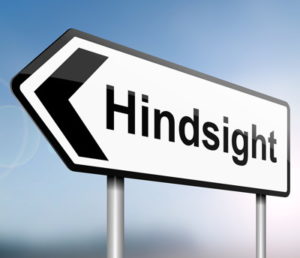 Thomas Gilovich was a psychologist who decided to explore the idea of hindsight bias and how it applies to betting. He discovered that a punters’ opinions concerning the success or failure of their previous bets influenced how they chose to bet in the future. People that were told that their previous bet lost because of a significant accidental factor, with Gilovich finding that they would then increase their stakes for the follow up bet.
Thomas Gilovich was a psychologist who decided to explore the idea of hindsight bias and how it applies to betting. He discovered that a punters’ opinions concerning the success or failure of their previous bets influenced how they chose to bet in the future. People that were told that their previous bet lost because of a significant accidental factor, with Gilovich finding that they would then increase their stakes for the follow up bet.
That is one aspect of hindsight betting, with the other being commonly referred to as the ‘I knew it all along’ bias. In essence, this is when people look back at events from the past and feel as though the outcomes were actually quite predictable. The result of this is that they then think that forthcoming events are also quite predictable, meaning that they oversimplify the causes of an event and bet with this oversimplification in mind.
Hindsight Bias Explained
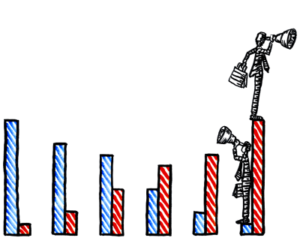 Neuro-economics is the science that looks to explain decision-making by humans. Research suggests that experiences that can lead to us making money are processed in the same way as chemically-induced highs by the brain, whereas financial losses are the equivalent of mortal dangers. Those that engage in betting on a regular basis are essentially walking a tightrope between a sense of euphoria and a feeling of loss.
Neuro-economics is the science that looks to explain decision-making by humans. Research suggests that experiences that can lead to us making money are processed in the same way as chemically-induced highs by the brain, whereas financial losses are the equivalent of mortal dangers. Those that engage in betting on a regular basis are essentially walking a tightrope between a sense of euphoria and a feeling of loss.
Amos Tversky and Daniel Kahneman’s work unveiling cognitive biases in the 1970s was a revelation. Humans are prone to countless misconceptions, all thanks to their own biases. The hindsight bias is just one of these and it is the tendency to look back at something that happened in the past and decide that it was actually easily predictable but we somehow missed all of the signs at the time.
Think about the football fixtures for the upcoming weekend and write down the odds of each outcome as you perceive them to be. Try to forget what you’ve written, then a week later, knowing the results, write what you thought the odds were before the match happened. Chances are that the second set of odds are much closer to the eventual result than the first set, whereas the initial odds were much more objective.
Nowadays, hindsight bias can be seen time and again in the work of the likes of football pundits. Pre-game, they will usually talk up the chances of one of the teams and act as if the other one has no chance. After the match, if the ‘better’ team lost, everything said before kick-off will be forgotten about and those same pundits will show replays of all of the errors and act as if it was always a predictable outcome.
Negative Reflections
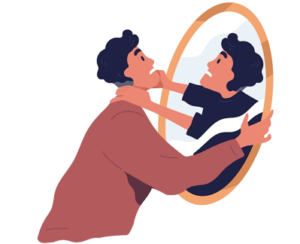 The interesting thing about hindsight bias is that it has been found to be far more common in instances when the outcome is a negative one in comparison to what people thought would happen. In other words, when someone loses a bet they are then sure that the winners were easily predictable and they were foolish to place the wager that they did. It’s likely that this is because people pay more attention to negative outcomes.
The interesting thing about hindsight bias is that it has been found to be far more common in instances when the outcome is a negative one in comparison to what people thought would happen. In other words, when someone loses a bet they are then sure that the winners were easily predictable and they were foolish to place the wager that they did. It’s likely that this is because people pay more attention to negative outcomes.
It’s also the case that hindsight bias becomes more dramatic if the outcome was more severe. When Liverpool defeated AC Milan on penalties in the 2005 Champions League final, for example, having come from 3-0 down at half-time, plenty of people claimed that they ‘knew’ that it would happen because of the severity of the recovery. Fans of other clubs claimed it was ‘predictable’ Liverpool would win, despite it being 188/1 at the time.
How It Influences Betting
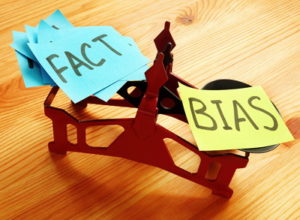 The ability to say ‘I told you so’ is all well and good, but when it begins to influence our betting and how we use our money we need to think about it more seriously. In the world of betting, you have to look long-term. Short-term celebrations over a win will always happen, but when that win only hands you your money back that you’ve lost before then then it’s not really worth all that much to you in real terms.
The ability to say ‘I told you so’ is all well and good, but when it begins to influence our betting and how we use our money we need to think about it more seriously. In the world of betting, you have to look long-term. Short-term celebrations over a win will always happen, but when that win only hands you your money back that you’ve lost before then then it’s not really worth all that much to you in real terms.
Think about betting on a football match. A team being 3/1 favourites to win doesn’t mean that it will definitely win, but that if the match was played three times then it would win won of them. That’s obviously a really simplistic way of thinking about it, but it’s also a good way of thinking about your wagers and whether the win or loss is instructive. You want to be able to assess your previous betting fairly and evenly.
The issue with hindsight bias is that it will often lead us to look at a small number of events and decide that they mean more than they do. You need to avoid the tendency to look back at a result and think, “I should have known that would happen” and therefore ignore what the result tells you about your betting. The bet that you made at the time was almost certainly the correct one, so hindsight shouldn’t change your opinion on that.
It’s not just when your chosen football team doesn’t win that you run the risk of falling foul of hindsight bias. It’s very likely that a long-odds winner will make you think that you should have known that it was always going to happen, looking at absent players that ended up being missed by their teammates as a clue you should have picked up on. You’ll soon think that you ‘should have known’ and ‘will do next time’.
The important thing is to resist the desire to adjust how you’re thinking about future bets because of what happened in the past. Your opinion before the match got underway was most likely perfectly valid, so you need to stick with the same logic moving forward. It’s only over a long period of time that we can truly deduce whether our initial betting plan was correct or not, so don’t rush to judgement based on hindsight.
Overcoming Hindsight Bias
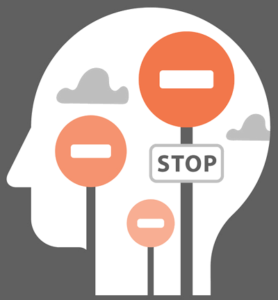 The truth is that it’s virtually impossible to overcome hindsight bias. It is an innate response that happens without us being consciously aware of it. The only hope that we’ve got is in knowing that it’s something that might happen and preparing for it. To put it another way, Georg Christoph Lichtenber, a German scientist, said, “Once we know our weaknesses, they cease to do us any harm.”
The truth is that it’s virtually impossible to overcome hindsight bias. It is an innate response that happens without us being consciously aware of it. The only hope that we’ve got is in knowing that it’s something that might happen and preparing for it. To put it another way, Georg Christoph Lichtenber, a German scientist, said, “Once we know our weaknesses, they cease to do us any harm.”
In learning about hindsight bias, you are already one step ahead of many bettors. There is little that you can do to stop yourself from experiencing it, but there’s plenty that you can do to avoid falling into the trap of allowing it to influence your future thoughts and feelings. Just because a previous bet hasn’t worked out, that should allow you to deviate from your standard plan for wagers moving forward. That is only the case when you’ve got it really wrong in a large number of bets and your whole system might need tweaking.
